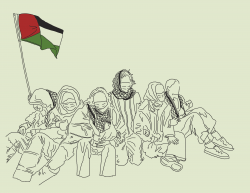Earlier this month, Georgetown’s Health Education Services rolled out a new initiative to foster improved sexual health education on campus. Although the process is not complete, it is encouraging to see that H*yas for Choice was involved in the creation of a program that would both improve sexual health education at Georgetown and respect the University’s Catholic identity. If this plan gets off the ground, it will demonstrate that student engagement with the University on touchy issues like sexual health can succeed.
The centerpiece of the proposal is the formation of a student group of peer educators that will create programming, including presentations in dorms, about sexual health at Georgetown. And while University-recognized student groups are still prohibited from advocating for the use of contraceptives, the move toward a peer educators program shows that the administration recognizes the need for comprehensive sexual health education. Furthermore, according to GU Men Creating Change Co-Chair Jared Watkins (COL ‘11), Health Education Services has promised to make clearer the fuzzy line between education about contraceptives, which is allowed, and advocacy for their use, which is not.
The tranquil atmosphere surrounding this new initiative is vastly different from the last time that the administration’s position on sexual health was challenged. Last spring, student group Plan A: Hoyas for Reproductive Justice protested using extreme methods, including having three members tape their mouths shut and chain themselves to the statue of John Carroll in Healy Circle. The group demanded “comprehensive sexual health education,” in addition to an end to the University’s ban on the sale of contraceptives on campus.
Although protests are certainly an important tool for student-led movements to raise awareness, affect campus opinion, and push an often-distant administration to respond, a confrontational approach alone is unlikely to be effective. Because most Georgetown students are not involved in on-campus activism, student movements that rely too heavily on protests with the intent of shaming the administration risk alienating the student body. For example, after the protest last year, which happened during a visiting weekend for accepted students, the president of the Georgetown College Democrats publicly disapproved of Plan A’s tactics.
Future protest movements should consider the lessons of the fight for sexual health education. While the University is often dismissive toward student causes, active engagement with the administration can achieve more than chains and duct-taped mouths ever will.




